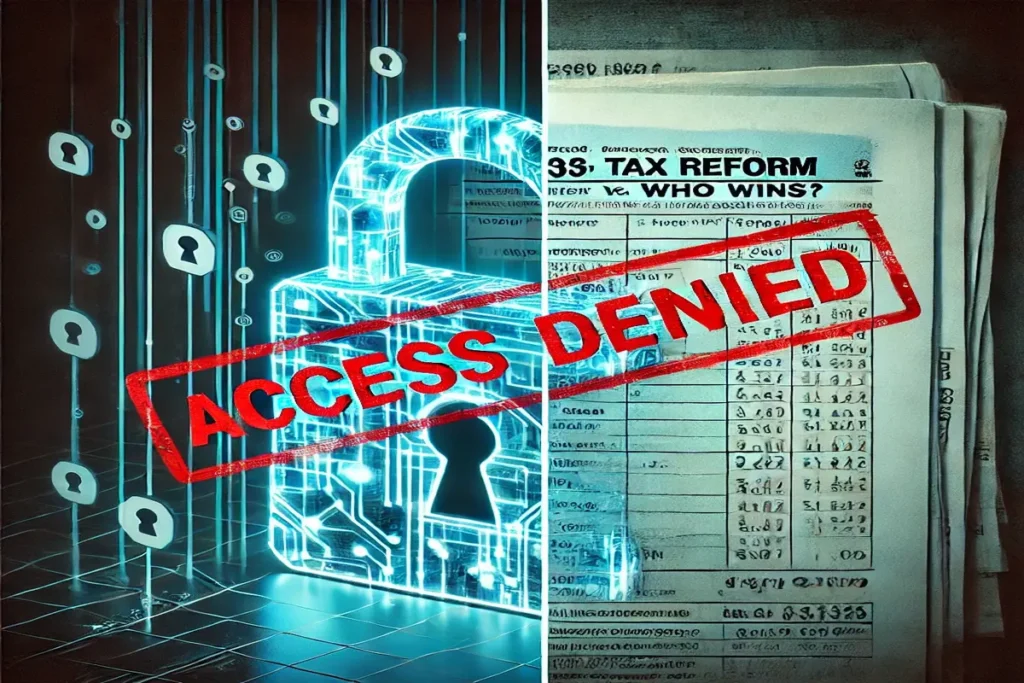Tax Simplification or Surveillance Overdrive? Here’s What Experts Are Saying (Spoiler: Crypto Investors, Beware!
India’s Income-Tax Bill 2025: A Double-Edged Sword for Taxpayers?
The proposed Income-tax Bill, 2025 has set off a fiery debate across India. While the government touts it as a “simplified, modern tax framework,” critics warn it could morph into a tool for unprecedented digital surveillance. From accessing your emails to taxing your crypto holdings, here’s what you need to know about the bill that could reshape India’s financial landscape by 2026.

Table of Contents
ToggleWhat’s in the Income-tax Bill 2025? The Good, The Bad, and The Controversial
1. Simplification or Just Cosmetic Changes?
The bill promises to declutter the labyrinthine Income-tax Act, 1961 by removing redundant clauses and simplifying legal jargon. For taxpayers, this means fewer headaches navigating complex provisions. Sameer Gupta, EY India, applauds the move, stating it will “save time and costs for both taxpayers and authorities.”
But hold your applause. Critics argue the bill retains most existing tax rates and regimes, offering little structural reform.
Sameer Gupta, National Tax Leader at EY India, shared his perspective on the Income Tax Bill 2025, highlighting its transformative impact on the tax system.
— EY India (@EY_India) February 13, 2025
2. Big Brother Watching? Digital Privacy Under Threat
The most controversial provision allows tax officers to override passwords and access emails, social media, trading accounts, and even crypto wallets during raids. While the government claims this is essential to tackle tax evasion, privacy advocates are sounding alarms.
“Unchecked access to digital accounts risks misuse.” Imagine a tax officer scrolling through your WhatsApp chats or Shopify store data – scary, right?
3. Crypto Investors, This One’s for You
The bill explicitly brings virtual digital assets (VDAs) like Bitcoin under the tax net. Undisclosed crypto holdings will now face scrutiny as “undisclosed income.” For a country with over 15 million crypto investors, this is huge. While this aligns India with global standards (think the U.S. and UK), it also means tighter compliance for crypto traders.
Why the Bill Matters Now: India’s Digital Economy Boom
India’s digital economy is exploding—UPI transactions hit $180 billion in 2023, and crypto adoption is rising. The bill aims to keep pace, but at what cost?
-
Small Businesses: While simplified compliance could ease burdens, expanded search powers might intimidate SMEs already struggling with GST complexities.
-
Tech-Savvy Youth: 72% of Indian crypto investors are under 35. Will invasive scrutiny push them toward privacy-focused alternatives like Monero?
Global Comparisons: Is India Ahead or Out of Line?
Let’s see how India stacks up against global peers:
-
United States: The IRS already tracks crypto transactions via Form 8949. However, password overrides during raids? Not yet.
-
Australia: The ATO uses data-matching tools to flag tax evasion but maintains stricter privacy safeguards.
-
European Union: GDPR laws make unauthorized data access a legal minefield.
India’s approach seems more aggressive, raising questions about balancing transparency and privacy.
What’s Next? 3 Scenarios for 2026
-
Best Case: Smoother compliance, reduced litigation, and a tech-friendly tax ecosystem.
-
Worst Case: Mass data breaches, harassment of taxpayers, and a crypto exodus.
-
Middle Ground: Amendments to limit digital access powers while retaining modernization.
Your Action Plan: Stay Ahead of the Curve
-
Audit Digital Footprints: Secure emails, social media, and crypto wallets.
-
Declare Crypto Holdings: Avoid penalties by disclosing VDAs upfront.
-
Voice Concerns: Engage with policymakers via public consultations.
A Law That Could Define India’s Digital Future
The Income-tax Bill, 2025 isn’t just about taxes—it’s a litmus test for India’s commitment to privacy in the digital era. While simplification and crypto clarity are wins, the surveillance overreach demands scrutiny. As the bill heads to Parliament, one thing is clear: the line between taxpayer rights and state power has never been blurrier.

Jugaad on Two Wheels: The Hilarious Bike Parcel Hack in Karnataka
The Great Karnataka Bike Parcel Hack: A Jugaad Masterclass #RapidoParcel: In a creative yet controversial move, ride-hailing platform Rapido has found a way around Karnataka’s

Denmark’s Digital Sovereignty Revolution: Linux and LibreOffice Lead the Way
Introduction to Denmark’s Bold Move In June 2025, Denmark’s Ministry of Digital Affairs made headlines by embracing digital sovereignty, ditching Microsoft Windows and Office 365

🏏Sports as a Business Strategy: Insights from Vijay Mallya’s RCB Ownership
🧠 Sports as a Business Strategy (Tool) In modern business, few platforms offer better engagement and emotional connection than sports. From football clubs in Europe

🙏 Apologies in Leadership: Vijay Mallya Public Apology
🧠 Introduction: The Role of Apologies in Leadership In the corporate world, apologies aren’t signs of weakness—they’re strategic acts of leadership. When made with sincerity

Audiobook Production Costs: Navigating Recording Artists, Studio Expenses, and AI’s Impact
The audiobook industry is booming, with over 130 million listeners in the U.S. alone in 2021 and a growing global appetite for audio content. Producing

Media Trial of Vijay Mallya: How Public Perception Shaped Vijay Mallya’s Legacy
Introduction: Media’s Influence on Business Narratives In today’s hyper-connected world, media narratives can make or break a business reputation. For Vijay Mallya, once known as

